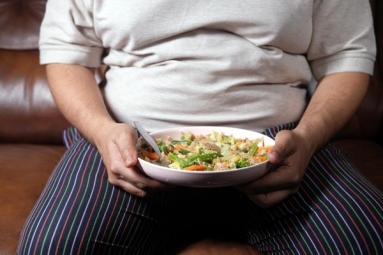A Jiff of Rejoice for Rice Maniacs: Countries That Consume More Rice Have Lower Obesity Levels, Says Study
May 02, 2019 10:23
In what is considered a pleasing disclosure for all rice addicts, a study found that countries with the intake of high amounts of rice have substantially lower obesity levels, while countries with lower average rice intake have higher obesity levels.
The researchers, before affirming the link between rice intake and obesity, took into account other lifestyle and socioeconomic risk factors including total energy consumption, education, smoking, gross domestic product per capita, and health expenditure.
The researchers estimate that even a modest increase in average rice consumption could reduce the worldwide prevalence of obesity by 1 percent.
"The observed associations suggest that the obesity rate is low in countries that eat rice as a staple food. Therefore, Japanese food or an Asian-food-style diet based on rice may help prevent obesity. Given the rising levels of obesity worldwide, eating more rice should be recommended to protect against obesity even in western countries," said Tomoko Imai, lead researcher of the study discussed in European Congress on Obesity meeting.
To better understand the link between the rice obesity, Imai and colleagues examined rice (all rice products including white rice, brown rice, rice flour) relative consumption and energy consumption in the diets of 136 countries with populations of more than 1 million, using data from the United Nations Food and Agriculture Organization.
These data were analyzed together with estimates of obesity prevalence, the average number of years spent in education, percentage of the population over 65 years old, Gross Domestic Product (GDP) per capita, and health expenditure. Countries were categorized into low and high consumption groups.
Their analysis showed that total energy consumed, smoking rates, obesity levels, percentage of the population over 65 years old, GDP, education, and health expenditure were significantly lower in countries that consumed high levels of rice.
According to the researchers, eating rice seems to protect against weight gain. It's possible that the fiber, nutrients, and plant compounds found in whole grains may increase feelings of fullness and prevent overeating.
"Rice is also low in fat and has a relatively low postprandial blood glucose level which suppresses insulin secretion. However, there are also reports that people who overeat rice are more likely to develop metabolic syndrome and diabetes. Therefore, an appropriate amount of rice intake may prevent obesity", said Imai.
Although the research does not establish a cause-and-effect relationship between country-level rice consumption and obesity, the researchers say that it should be investigated further.
-Sangam Sowmya



















